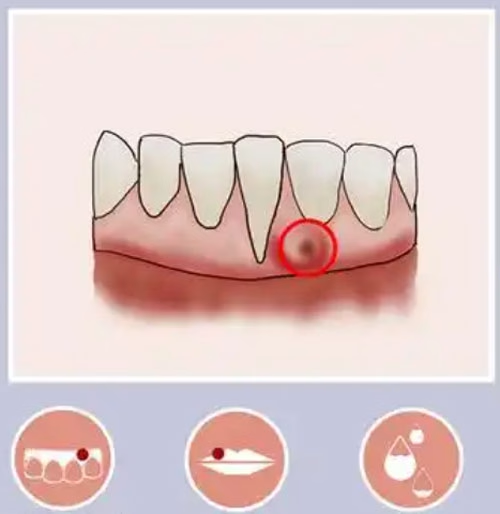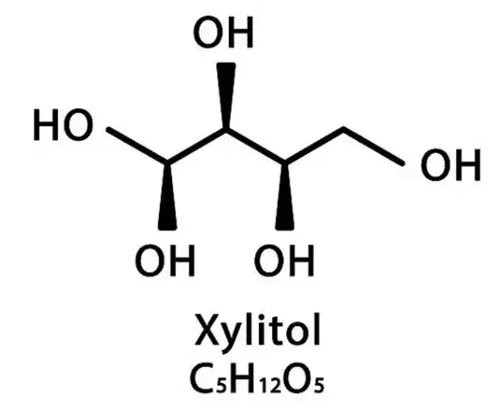Introduction
Gum health is an integral part of our overall oral health, and by extension, our general well – being.
When gums become unhealthy, a host of problems can arise.
- Gingivitis, the mildest form of gum disease, is characterized by red, swollen, and bleeding gums.
- If left untreated, gingivitis can progress to periodontitis, a more serious condition where the gums pull away from the teeth, forming pockets that can become infected.
- In advanced cases of periodontitis, the supporting bone structure of the teeth can be damaged, leading to tooth loss.

In the quest for maintaining and improving gum health, many people have turned their attention to various natural remedies and products. One such substance that has gained a lot of attention in recent years is xylitol.
Xylitol is a naturally occurring sweetener found in many fruits and vegetables, and it has been widely used as a sugar substitute in various food and oral care products.

But the question on many people’s minds is: can xylitol grow back gums?
This seemingly simple question has sparked a great deal of interest and debate among dental professionals, researchers, and consumers alike. Some claim that xylitol has the potential to promote gum regeneration, while others are more skeptical. In the following sections, we will delve deep into the science behind xylitol and its relationship with gum health to try and find some answers.
The Science Behind Xylitol and Gum Health
Introduction of Xylitol
Xylitol is a naturally occurring sugar alcohol, also known as a polyol. It belongs to a group of carbohydrates that have a chemical structure similar to both sugars and alcohols. One of the most notable characteristics of xylitol is its sweet taste. Xylitol also has a cooling effect in the mouth. For explanation on its properties, please read article “what is xylitol”.

Xylitol Interacts with Oral Bacteria
One of the key ways xylitol contributes to gum health is through its interaction with oral bacteria. The oral cavity is home to a diverse community of microorganisms, both beneficial and harmful. Among the harmful bacteria, Streptococcus mutans is a major culprit in the development of dental caries (tooth decay) and gum problems.
Xylitol can inhibit the growth and proliferation of Streptococcus mutans.To know the mechanism of xylitol inhibit bacterial, please read “Can xylitol reverse cavities”.

Moreover, xylitol helps prevent the build – up of plaque. This is crucial for gum health because plaque accumulation is a primary cause of gum inflammation.
Another important aspect is xylitol’s effect on the acid production of oral bacteria. Since xylitol is not efficiently metabolized by these bacteria to produce acids, its presence in the mouth helps to reduce the acid attack on the teeth and gums, protecting the gum tissue from the harmful effects of acid induced inflammation.
Xylitol’s Anti – Inflammatory Properties
There is growing evidence to suggest that xylitol may possess anti inflammatory properties, which can have a significant impact on gum health.
Studies have shown that xylitol may be able to modulate the body’s inflammatory response. Some research indicates that xylitol can reduce the production of pro inflammatory cytokines, such as interleukin – 1β (IL – 1β) and tumor necrosis factor – α (TNF – α), by macrophages. By reducing their production, xylitol may help to dampen the inflammatory response in the gums.

Another way xylitol may exhibit anti – inflammatory effects is by interfering with the signaling pathways involved in inflammation. This would ultimately result in a decrease in the production of inflammatory mediators and a reduction in the overall inflammation in the gum tissue.
Research on Xylitol and Gum Regrowth
Existing Studies and Their Findings
Over the years, several studies have been conducted to explore the potential of xylitol in promoting gum regrowth. One of the key areas of research has been on the impact of xylitol on gum – related cells, such as gingival fibroblasts. Gingival fibroblasts are crucial cells in the gum tissue as they are responsible for maintaining the extracellular matrix, which provides structural support to the gums.

Some in – vitro studies have indicated that xylitol may have a positive effect on the proliferation of gingival fibroblasts. For example, a study published in a dental research journal exposed gingival fibroblast cultures to different concentrations of xylitol. The results showed that, at certain concentrations, xylitol was able to increase the number of viable gingival fibroblasts. This increase in cell proliferation could potentially contribute to the regeneration of gum tissue. If more fibroblasts are present and actively producing the extracellular matrix components like collagen, it may lead to an improvement in the overall structure and integrity of the gums.
In addition to in – vitro studies, there have also been some clinical trials involving human subjects. These trials have focused on the long – term effects of xylitol – containing oral care products on gum health. Some of these studies have reported a reduction in the severity of gingivitis among participants who regularly used xylitol – based toothpastes or mouthwashes. Although these studies did not directly measure gum regrowth, a reduction in gingivitis can be seen as a positive sign. Since gingivitis is an inflammatory condition that can lead to gum damage and recession, controlling it may create a more favorable environment for the gums to heal and potentially regrow.

Another line of research has looked at the effect of xylitol on the immune response in the gums. As mentioned earlier, xylitol may have anti – inflammatory properties. Some studies have found that xylitol can modulate the production of cytokines in the gum tissue. Cytokines are small proteins that play a crucial role in the immune response and inflammation. By regulating cytokine production, xylitol may help to reduce the chronic inflammation in the gums, which is often associated with gum disease progression. This reduction in inflammation could, in turn, support the natural repair and regeneration processes in the gum tissue.
Conclusion
In summary, the evidence regarding xylitol’s ability to grow back gums is a mix of promising indications and uncertainties.
- The scientific research so far shows that xylitol has distinct antibacterial properties. It helps in preventing the development of gum diseases such as gingivitis and periodontitis.
- Moreover, xylitol may possess anti inflammatory properties. It can create a more favorable environment for the gum tissue to heal and maintain its health.
- Some in – vitro studies have demonstrated that xylitol can promote the proliferation of gingival fibroblasts, which are essential for maintaining the structure of the gum tissue. However, these in-vitro results may not fully translate to in-vivo situations. Clinical trials with human subjects have mainly shown a reduction in the severity of gingivitis when using xylitol containing oral care products. While this is a positive sign, direct evidence of gum regrowth in humans is still lacking.
Overall, while xylitol has been shown to have beneficial effects on gum health, there is currently not enough strong evidence to firmly conclude that it can directly grow back gums.
Expand reading:

